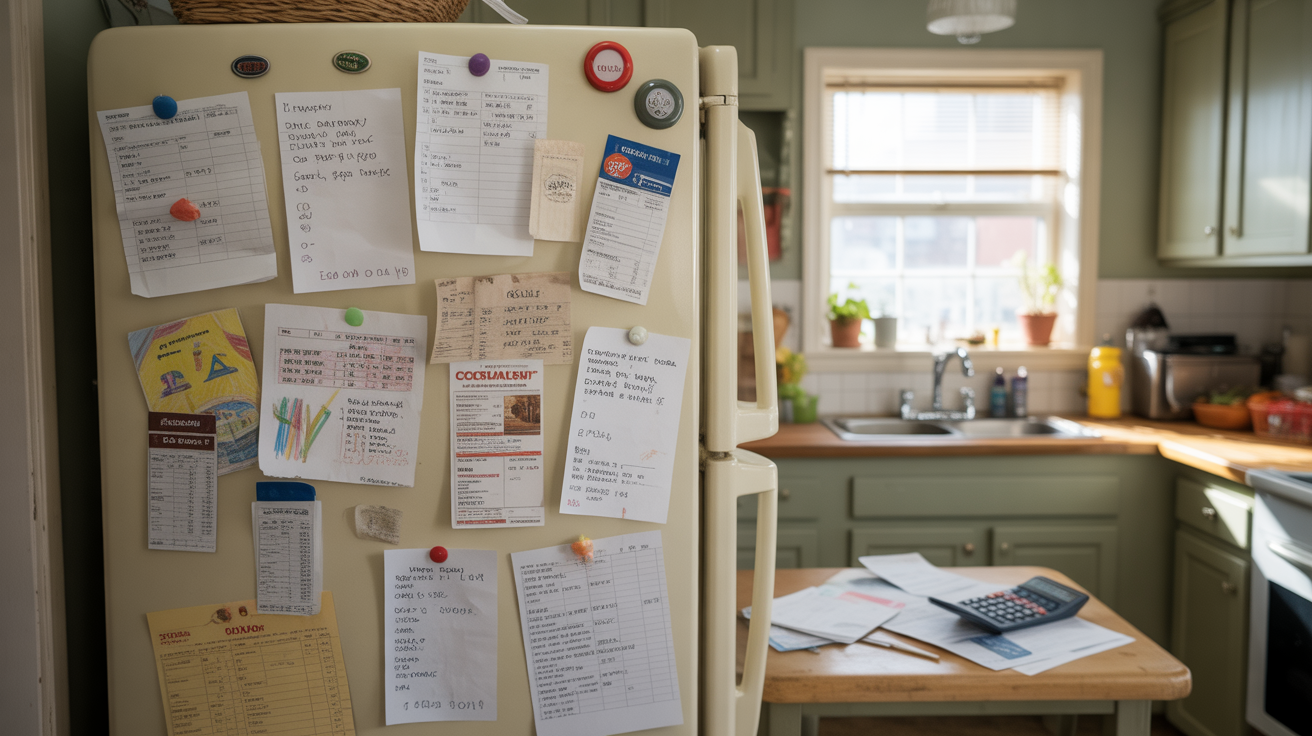Budgeting Smarter in Holly Springs
Moving to a new city like Holly Springs, NC means re-evaluating your monthly budget to account for local costs of living. Whether you’re a new arrival or long-time resident, it’s helpful to see real examples of how expenses typically break down for different households in town. In Holly Springs, housing and electricity often make up more than 55% of a household’s budget.
Depending on your lifestyle, your monthly budget in Holly Springs can look very different. A single young professional renting a one-bedroom will have vastly different costs than a family of four in their own home. Here are some typical monthly budget examples to help you plan smarter.
What Real Budgets Look Like in Holly Springs
To paint a realistic picture, let’s look at monthly expense breakdowns for three common Holly Springs households:
| Expense | Jasmine (27, single renter) | Sam & Elena (couple renting) | The Ortiz Family (homeowners) |
|---|---|---|---|
| Gross Monthly Income | $3,000 | $7,000 | $9,500 |
| Rent/Mortgage | $1,100 | $1,800 | $2,400 |
| Utilities | $180 | $280 | $450 |
| Food | $400 | $800 | $1,200 |
| Transportation | $200 | $500 | $800 |
| HOA/Fees | $0 | $200 | $350 |
| Miscellaneous | $400 | $700 | $1,000 |
| Savings | $300 | $1,000 | $1,500 |
These estimates reflect common lifestyle costs in Holly Springs. All income figures are gross monthly income (pre-tax).
As you can see, housing tends to be the biggest chunk of most Holly Springs budgets, followed by food and utilities. Homeowners also have to factor in additional costs like HOA fees and higher utility bills. But with smart planning, all three of these households are able to put some money into savings each month.
Biggest Cost Drivers
While every household is different, a few big factors tend to drive up monthly expenses in Holly Springs:
- Seasonal heating and cooling costs: Holly Springs gets hot in the summer, so air conditioning can cause electric bills to spike. Heating in winter also adds up.
- HOA fees: Many neighborhoods in Holly Springs have homeowners associations with monthly dues that can be hundreds of dollars.
- Commute costs: Holly Springs is a bit of a bedroom community, so many residents have a daily drive that eats up gas money.
- Rising rent: As Holly Springs grows, rental rates have been steadily increasing, taking a bigger bite out of many budgets.
In Holly Springs, the cost of utilities can rise substantially in summer due to heavy air conditioning use. It’s important to plan ahead for those seasonal bill fluctuations.

Tips to Stretch Your Budget Further
Fortunately, there are some ways to keep expenses under control in Holly Springs:
- Shop at discount grocery stores like Aldi or Lidl to trim your grocery budget.
- See if you qualify for off-peak electricity billing to save on summer cooling costs.
- Install window shades or plant trees to reduce your AC needs.
- Take advantage of public transportation or carpool to cut gas costs.
🏆 Pro tip: Check for utility rebates and incentive programs in Holly Springs to offset the cost of energy-efficient upgrades that can lower your bills.
FAQs About Monthly Budgets in Holly Springs
Q: Can you live in Holly Springs on $3,000 a month?
A: Yes, if you’re single and don’t mind renting a small apartment or having roommates. As the example budget above shows, $3,000 a month is doable but doesn’t leave much wiggle room.
Q: What’s a realistic rent budget for Holly Springs?
A: It depends on the neighborhood and type of rental, but plan on at least $1,000 for a basic 1-bedroom apartment. In popular areas like Downtown Holly Springs, rent for a 1BR can top $1,500.
Q: What’s a good overall budget for a $4,000 monthly income in Holly Springs?
A: Aiming for $1,200-$1,500 in rent, $500 for food, $300 for utilities, $400 for transportation, $500 for miscellaneous costs, and putting $500-$800 into savings is a smart breakdown. Adjust as needed for your lifestyle.
Planning Your Next Step
Moving to a new city is the perfect time to reassess your household budget. Use the sample monthly breakdowns above as a starting point, and then customize based on your unique needs and lifestyle. Factor in your must-haves, like housing and food, but also make sure to leave room for savings to stay on solid financial footing.
Thinking of relocating within the Triangle area? Check out our cost of living guides for nearby cities like Cary, Apex, and Raleigh to compare typical monthly expenses and see where your budget will go the furthest.
